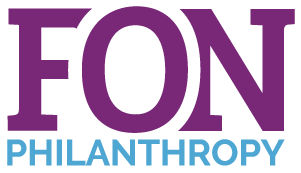We are likely to see a significant transformation under a President Trump 47. I believe this term will be notably different from his first. He’s undoubtedly more experienced, has broader support, and has surrounded himself with a new team. Furthermore, a plurality of Americans are calling for change. Having met President Trump briefly a few times while growing up in West Palm Beach, and even visiting Mar-a-Lago before the Trump era, I can tell you that his personal energy is quite different from what is portrayed on television. In person, he is charming and engaging.
For this discussion, we’ll focus on the areas where we have a direct business interest.
In 2019, we filed a patent with the U.S. Patent and Trademark Office for using Blockchain in healthcare, specifically for Electronic Health Records (EHRs). This idea came after extensive thought on what blockchain could achieve that current systems cannot—faster, better, and cheaper. The goal was to identify solutions that are economically justifiable and practically applicable in healthcare, and I identified a few key areas.

One straightforward application is Provider Medical Credentialing (PMC), a process that hospitals, insurance companies, and medical groups must perform generally every two years. Having personally facilitated this process for our providers at least 4,000 times, I know that reducing healthcare costs is no easy feat. Every cost reduction initiative inevitably impacts someone’s revenue, which is why claims of significant healthcare cost reductions are, at present, unrealistic.
Another possible application is in provider networks by insurance companies, though this becomes less compelling with the advent of mobile apps. While some have suggested using smart contracts to facilitate payments between payers and providers, I believe this is a flawed idea. Understanding the dynamics of both sides, it’s clear that such a model would not work. The healthcare industry, where even after referrals are approved there is often fine print stating, “this is not a guarantee of payment,” will never embrace this concept.
However, we developed something truly unique, focused on the consumer. We call it “Secure Transmission of Electronic Health Records Via Blockchain.” The U.S. Patent and Trademark Office issued it as patent #11,121,877 on September 14, 2021.
This patent, along with several others in the same space, outlines a universal EHR created by aggregating existing EHRs. It describes the organization of both identified and de-identified data, as well as the use of Blockchain Tokens to compensate consumers for their data usage, facilitated through an intermediary. This system was always designed to exist outside the traditional healthcare system, with the consumer positioned at the top of the healthcare service pyramid, rather than at the center as often described in conventional models.
Since the patent’s issuance, we have maintained a firm belief in using Blockchain Tokens to pay consumers and to receive payment from data buyers. Unfortunately, the Securities and Exchange Commission (SEC) has been highly hostile toward blockchain and crypto projects, filing lawsuits against virtually every U.S.-issued blockchain token or utility token, with what seems like religious fervor.
However, President Trump 47 holds a very different perspective on blockchain and cryptocurrency, likely influenced by his strong support base among crypto advocates and those who favor a less restrictive SEC. Having dealt with the SEC for over 30 years, I’ve found them firm but not overly unreasonable. In recent years, however, the SEC has become increasingly anti-business, which has hurt individual investors by preventing them from funding innovation at early stages—innovation that was once fueled by a more favorable environment under President Clinton in the late 90s. This period led to significant investments and Initial Public Offerings (IPOs). Take a look at this graph below, dating back to 1990 to 2024. I participated in an IPO in 1997 and another in 2007.
A New Era for the SEC
President Trump brings a fresh perspective on business and government regulation, especially in the realm of the SEC. His views might even be influenced by figures like Elon Musk, whom the SEC recently targeted in a lawsuit regarding his purchase of Twitter.
Trump has nominated former Securities and Exchange Commissioner Paul Atkins to replace outgoing SEC Chair Gary Gensler, who left office on Inauguration Day at 11:30 AM. Trump praised Atkins in a Truth Social post, calling him “a proven leader for common-sense regulations” who believes in “robust, innovative capital markets that are responsive to the needs of investors.” He further emphasized that Atkins recognizes the importance of digital assets and other innovations in strengthening America’s economy.

A New Era for Crypto and Tokens
Cryptocurrencies and digital tokens represent groundbreaking innovations that the U.S. can leverage to great benefit. Entrepreneurs, innovators, and companies have long called for clear and practical regulations, but the SEC has stubbornly classified all cryptocurrencies and tokens as securities (with the exception of Bitcoin, as it was created outside the U.S.), applying century-old laws, such as the Securities Act of 1933 and the Securities Exchange Act of 1934, to a modern digital age.
The SEC’s approach has stifled innovation and capital formation, and in some cases, destroyed wealth. This interpretation of laws like the Sarbanes-Oxley Act (2002) and the Dodd-Frank Wall Street Reform Act (2010) has had detrimental effects. However, the recent decision by the U.S. Supreme Court to overturn the Chevron Doctrine (1984) in Relentless, Inc. v. Department of Commerce(2024) suggests that many government regulations without legal foundation may soon be repealed or revised. With President Trump 47 and a new SEC, this shift could happen even more rapidly.
In the past 72 hours, President Trump (via Fight Fight Fight LLC) and First Lady Melania Trump (through MKT World, LLC) issued two new “meme crypto tokens.” Within hours, major crypto exchanges began listing these tokens, with Coinbase valuing them at $10 billion and $1.5 billion, respectively, at the time of this writing.
Our Business View and Opportunity in Healthcare, Consumers, and AI
The U.S. healthcare industry, valued at $5.2 trillion, is fundamentally flawed. The consumer is often treated as the product, and we are spending more on healthcare yet achieving less in terms of wellness than any other developed country. Last year, consumers’ direct costs increased significantly, as we have documented.
We believe that empowering consumers with control over their own data, using AI to help them understand their EHRs, and sharing income with consumers is the way forward. Our vision is to enable consumers to be compensated for the use of their data via Blockchain Tokens, which would be backed by healthcare data. This is not just innovative; it’s revolutionary.
In 2022, Silicon Valley venture capital giant Andreessen Horowitz said, “We think the biggest company in the world will be a consumer health tech company.” Healthcare data is widely recognized as the most valuable data set in the world today, and we are committed to leading this transformation.
About HealthScoreAI™
Healthcare is at a tipping point, and HealthScoreAI is positioning to revolutionize the industry by giving consumers control over their health data and unlocking its immense value. U.S. healthcare annual spending has exceeded $5 trillion with little improvement in outcomes. Despite advances, technology has failed to reduce costs or improve care. Meanwhile, 3,000 exabytes of consumer health data remain trapped in fragmented USA systems, leaving consumers and doctors without a complete picture of care.
HealthScoreAI seeks to provide a unique solution, acting as a data surrogate for consumers and offering an unbiased holistic view of their health. By monetizing de-identified data, HealthScoreAI seeks to share revenue with consumers, potentially creating a new $100 billion market opportunity. With near-universal EHR adoption in the USA, and advances in technology, now is the perfect time to capitalize on the data available, practical use of AI and the empowering of consumers, in particular the 13,000 tech savvy baby boomers turning 65 every single day and entering the Medicare system for the first time. Our team, with deep healthcare and tech expertise, holds U.S. patents and a proven track record of scaling companies and leading them to IPO.
Noel J. Guillama-Alvarez
https://www.linkedin.com/in/nguillama/
+1-561-904-9477, Ext 355






